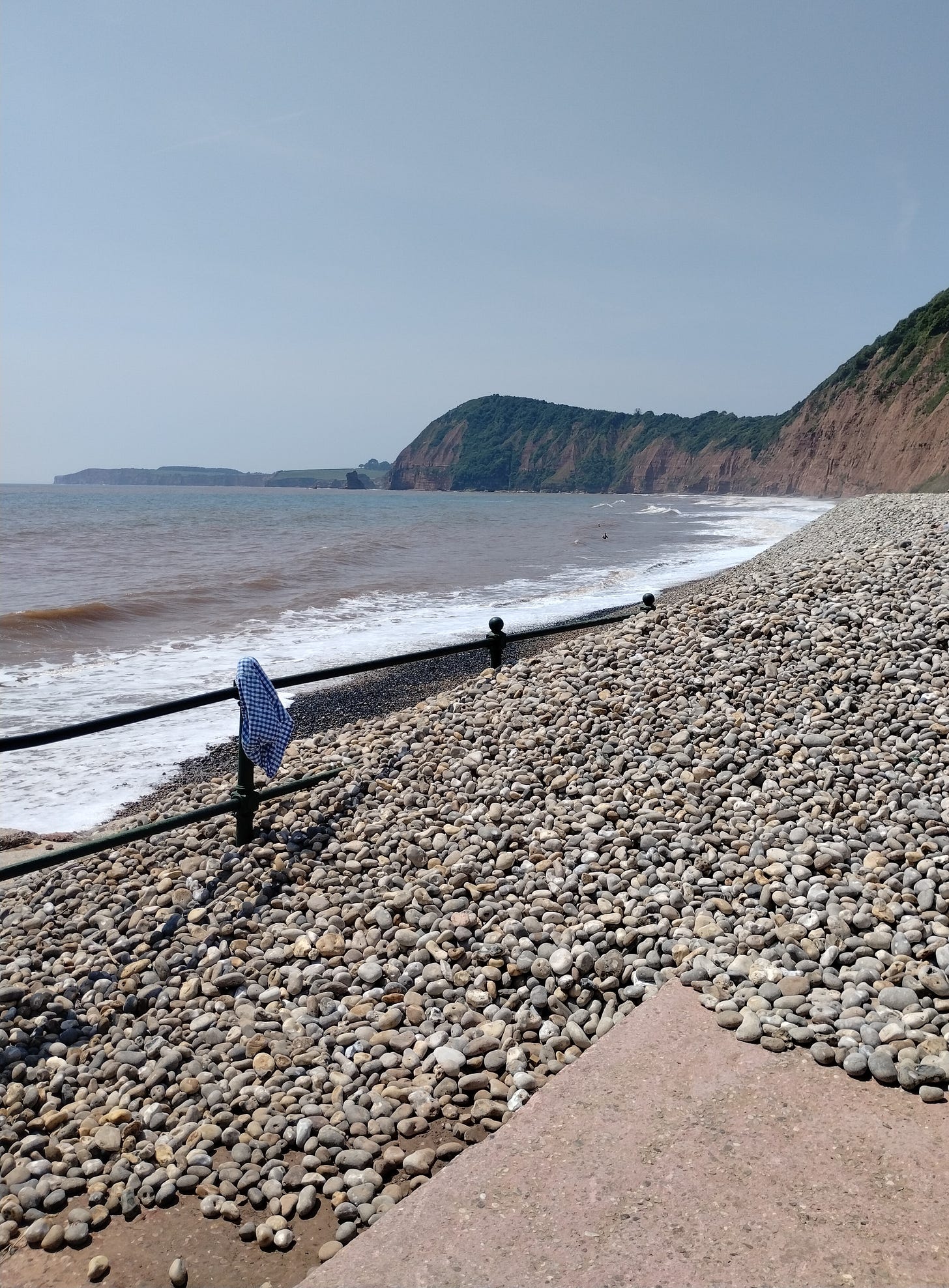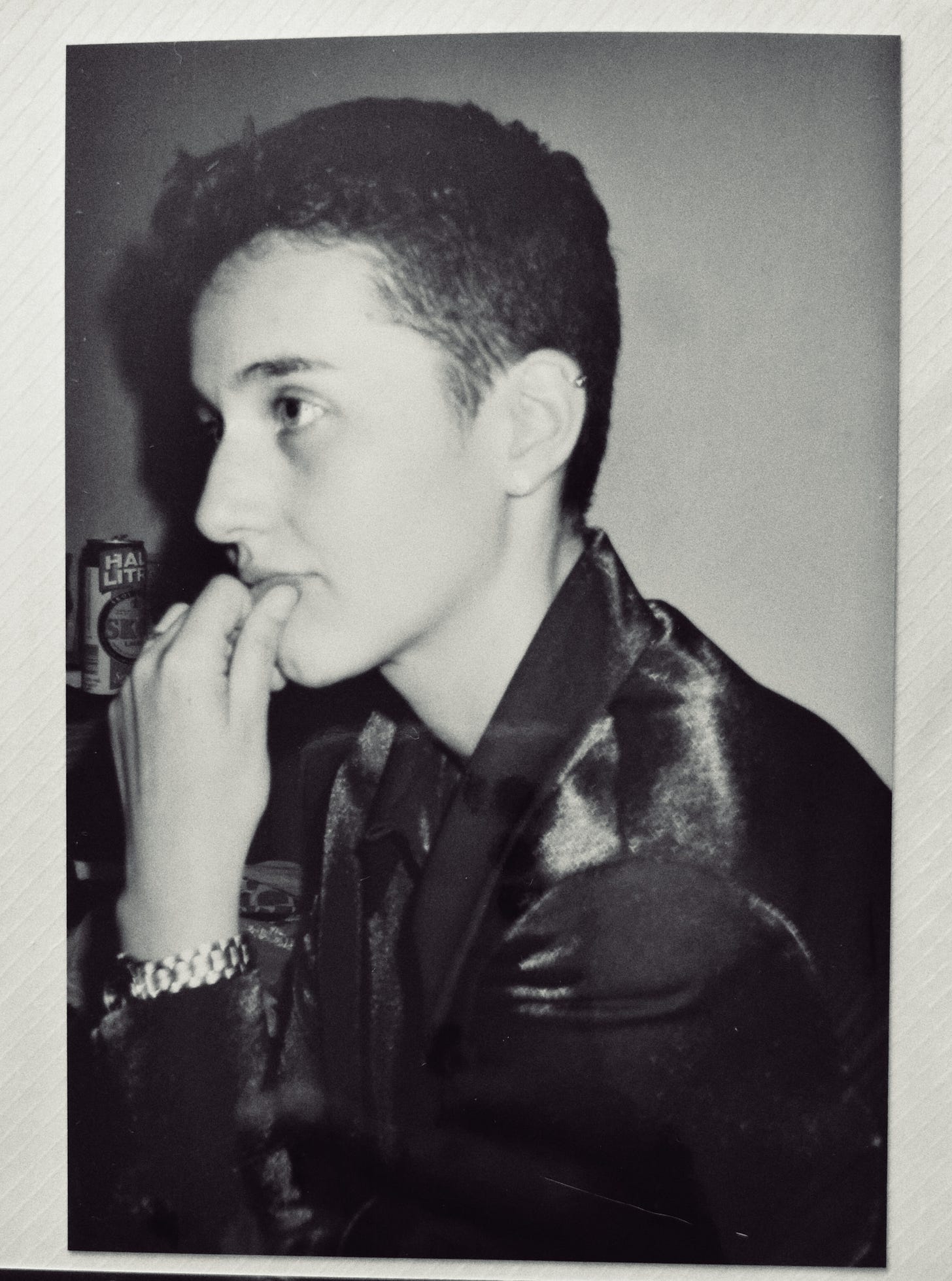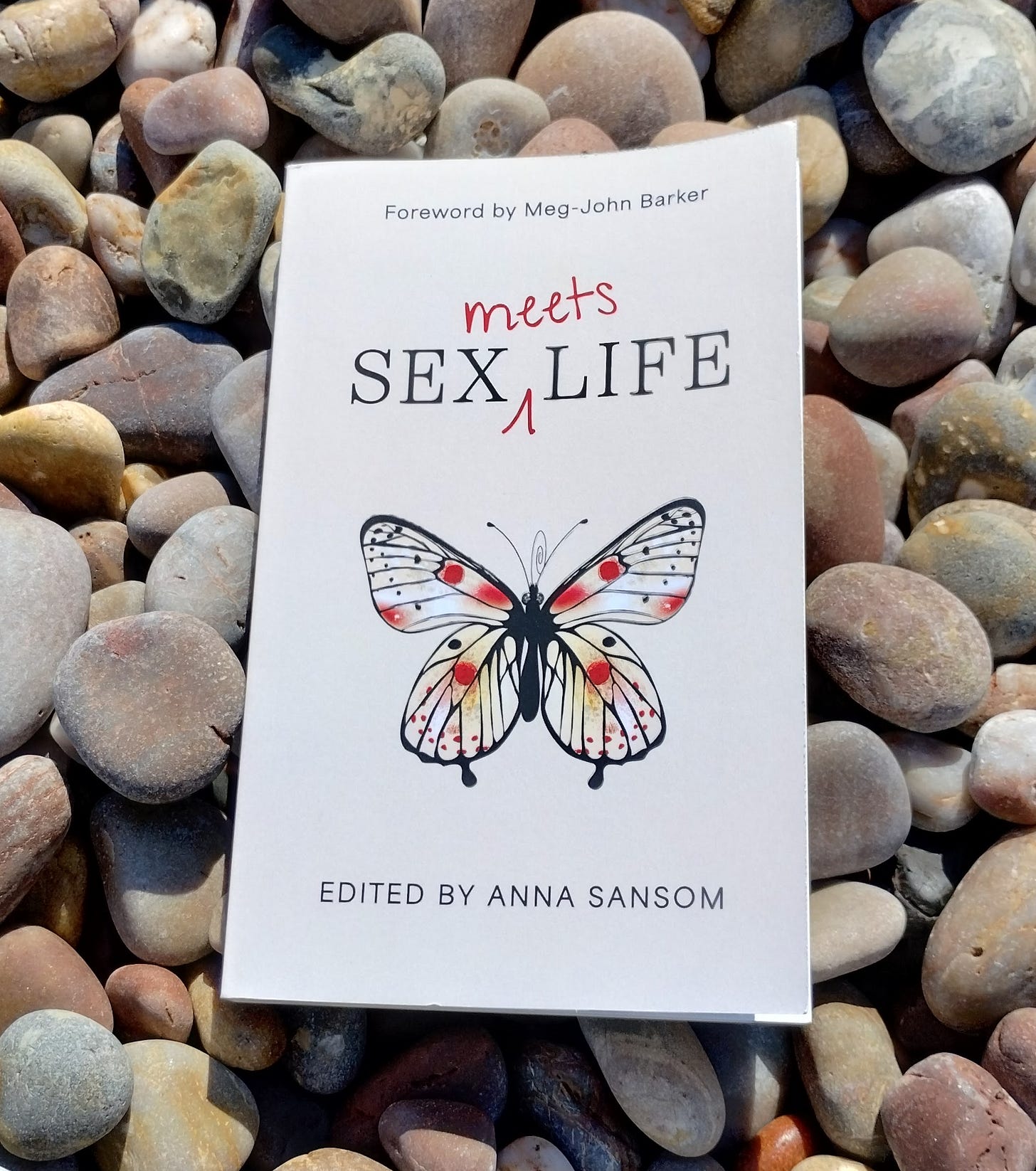What if it's just a phase?
Once upon a time, my friends and I would spend hours debating whether we should talk to the latest person we fancied. For me, it was the woman who worked the bakery counter and (I swear) always gave me the biggest muffin from the tray. (I’ll never understand how ‘muffin top’ can be used as an insult; the decadent cakey overspill was a treat for my eyes and mouth.)
We gave our crushes nicknames and dissected any conversations we had with them over pints of beer and shared packets of peanuts. I preferred the dry-roasted nuts, but my friends always opted for salted. We’d rip open a bag of each and lay the packets flat on the bar table, reaching for crunchy, moreish morsels between confessional sentences and slugs of ale.
We’d go to the pub each wearing some variation of jeans, a checked shirt, a T-shirt and a waistcoat (this was the 90s; waistcoats were cool). My jeans were from the men’s section of What Everyone Wants; we all bought our shirts from Millets.
One by one, we dared to get our hair cut shorter, eventually realising that the barber was more willing to follow instructions than the hairdresser, who always insisted on leaving an element that was “just a bit softer, just a bit more feminine”.
We allowed our bodies to touch each other on the hot crush of the dancefloor, and knew the heady rush of intimacy we felt must stay confined there. (Except it didn’t always. Friends became lovers; lovers became friends.)
Sex was a game.
We’d canvass opinions on the future of our relationships, finding it easier to be truthful with each other than with the person we were dating. (That, in itself, should have told us everything we needed to know.)
But then…
We grew up.
Life happened.
We got jobs and homes and marriages.
Our conversations stopped being about the excitement of a new crush or love affair and, instead, became about work, mortgages, and holiday destinations.
Decades passed.
And now?
We don’t go on nights out any more, so we rely on early evening phone calls, or daytime café meet-ups with pots of loose-leaf tea and a slice of something sweet. (I’m more likely to opt for a piece of almond-y, jammy Bakewell tart these days; muffins are just not the same as they used to be.)
Now the explicit details we share are about the broken toilet on the long train journey home, and how we thought we’d wet ourselves, or bleed through our clothes, or have a panic attack, or all three.
We talk about anxiety that makes us question our ability to be out in the world, and unbidden rage that makes it dangerous to be so.
We talk about the pros and cons of HRT, cancer scares, broken sleep, healing from surgery, pulled muscles, debilitating migraines…
Bodies that feel unknown and unreliable.
And in quiet conversations behind closed doors, we confess our confusion about libidos missing in action, and our sadness about no longer being the people we once were.
All of this is true AND…
I know that all is not lost.
One of the gifts of ageing is understanding more about phases and transitions.
“It’s just a phase” is a criticism often levelled at the young.
Exploring new ideas and identities is seen as a bad thing.
People are ‘supposed’ to make up their mind, choose one, stick with it no matter what.
I find the notion that we are static beings laughable.
We are always changing and evolving.

The beach I visit weekly is made of large pebbles. Despite the weight and sheer volume of these pebbles, the incoming and outgoing tides manage to rearrange the contours of the beach daily.
Every day is different.
We have our own materiality and tides, too.
We are constantly shifting.
Everything is a phase.
Which means, when I reflect on my sexuality over the last week, month, year, or decade, I can see times when I felt more connected to this part of me and times when I felt less so.
I had around 7 years in perimenopause (with a whole raft of changes to my body and my mood) before my hysterectomy last year and subsequent shift into menopause.
During that time, I grieved the increasing absence of my libido, experienced my body more as a site of pain than pleasure, leant into my responsive desire, and wondered when and how I’d finally emerge from this life phase.
I’m now 8 months post-hysterectomy, and the new shape of my sexual self is taking form.
Yes, it’s different to what it was in my 20s, 30s, and 40s.
But there are similarities too:
The need to be loved and appreciated for who I truly am.
The need to share intimacy in ways that are personally meaningful and fulfilling.
The need to feel good in my body.
These are the same fundamental truths that each of the authors in the anthology Sex Meets Life wrote about.
Each person is at a different stage and phase of their life, but no matter their age, sexual orientation, gender identity, physicality, neurodiversity, or any other aspect, they recognise that their sex life is an ever-evolving and shifting part of them.
After at least a year of wondering if I’d ever feel horny again, the last few weeks have brought about a shift in me.
I can feel my sexual self emerging again.
If I went into the cocoon as a carefree caterpillar, is it possible that I will emerge as a soft-winged butterfly?
Is it possible that this latest messy goo* stage of life was just a phase?
And what new opportunities await me now that I can fly?
My companion text for this time of transition has been the extraordinary collection of personal essays and life-inspired fiction in Sex Meets Life.
When I read other people’s stories – different from mine yet fundamentally the same – I’m reminded again that we are always changing and evolving.
All of life is a phase.
***
*The caterpillar-goo-butterfly analogy was used by the brilliant Alyx Marsh in their chapter, called “Silver Linings”, in Sex Meets Life. In it, Alyx writes about how their rising desire in menopause and a new confidence in their body helped overcome a long-standing fear of intimacy and led to a confession to their husband of 30 years. The life changes that followed were unexpected silver linings.
You can read Alyx’s personal essay, plus the writing offered by 16 more talented and international authors, in Sex Meets Life.
In this daring anthology, you’ll find candid stories about the impact of ageing, illness, relationship changes, exploring gender, sexual awakenings, becoming a caregiver, and more.
From reclaiming desire to redefining intimacy, each story offers a raw, honest look at the challenges - and the celebrations - that can emerge when our sex lives come face-to-face with life.
Click here to find it on Amazon (or ask your favourite bookshop to get you a copy).






Yes, yes and yes! Can relate to the unexpected sexual changes brought about by a hysterectomy. And I especially relate to the continual churn of phases. I call it a constant state of becoming. Thanks for sharing.
Thank you for putting into words what mirrors my own personal journey. I cling to the hope that it is a phase!